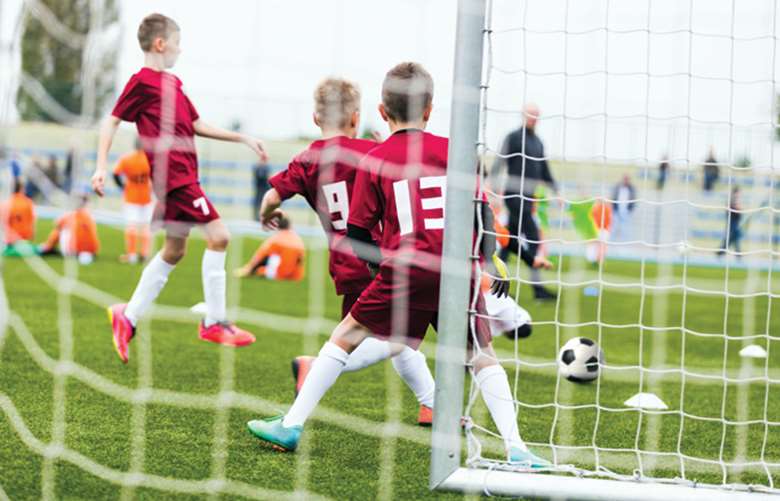Safeguarding is a key part of coaching young footballers
Howard Williamson
Tuesday, January 17, 2017
Not that long ago I would speak proudly about being a football coach for a group of kids, now 12.

I have been doing this for five years, committing around four hours a week to this particular form of voluntary work. Monthly meetings with other kids' coaches, all giving their time for free, often involve wondering how we might find the sponsorship for next year's kit, or the funding for some cones and training bibs.
I am more reticent about proclaiming this coaching role now. As a result of the courage of a few former professional players towards the end of 2016, and the naming of a number of individuals for their perpetration of sexual abuse over many years, the name of "football coach" has been brought into disrepute, and worse.
It is important, therefore, to remind ourselves that we are talking about - and an increasing number of police forces are investigating - historical child sex abuse. That is not to say that it is not still going on today, but safeguards and safeguarding have become a steadily more prominent feature of "youth development" arrangements. Indeed, my identity badge issued by the Football Association of Wales, has Safeguarding as its headline word, not Coach.
I recently renewed my Football Leader's Award (the lowest level of coaching qualification, but a requirement). A few days later I spoke at a Commonwealth Youth Conference that was focused on the role of sport and the arts in youth development. Ironically perhaps, given that it was only a few days before Andy Woodward courageously broke the silence on behalf of a whole generation of professional footballers, I made the point that since the last time taking the award (four years ago), there was much more concentration on what I would describe as the youth work elements of our commitment rather than footballing technique and skill. As our own coaches kept emphasising, few of our kids will become first-class athletes but we would like them all to become first-class citizens. And so teamwork, respect, courtesy, consideration, and other interpersonal qualities had to be cultivated just as much as passing, moving, heading or shooting.
In the week that Woodward and other former professional players launched their charity The Offside Trust, I also did a safeguarding course. The timing was, therefore, very poignant. An increasing number of footballers, including one top-class former international, had during the week revealed their experience of sexual abuse. I was anticipating at least some focus on why such historical child sexual abuse might have been so prevalent in football: both the general issues that children were not listened to nor believed and the specific issues about the macho culture, the ridicule of any signs of weakness or vulnerability and the enormous power of higher level football coaches to make or break the future career of a player.
The course was, sadly, rather poor in both content and delivery. Scheduled for three hours and providing a "qualification" lasting for three years, it ran for barely two hours. Issues that really needed exploring from many angles were curtailed. We all know that context is everything and it seemed so important to work out why we believe that safeguarding and child protection is now more robust and effective - to really delve into how the age of the child, their presenting behaviour, observable changes in their character and attitude, and things they may have said combine to produce warning signs that demand reflection, interpretation and - sometimes - action.
We now know that there was a time when not just soccer but other celebrity contexts were ripe for infiltration by those with the worst of motives, who were able to groom and traumatise vulnerable and frightened children over tragically long periods. Hopefully, both the work we now do with children, in terms of giving them the confidence to speak out, and the work we do with adults, in terms of alerting them to the paramountcy of safeguarding issues, means that this should not happen again. I hope this is the case. Sports clubs, dance clubs and drama groups for children and young people are all fundamentally about youth development. It is all "youth work" at the end of the day.
- Howard Williamson is professor of European youth policy at the University of South Wales




